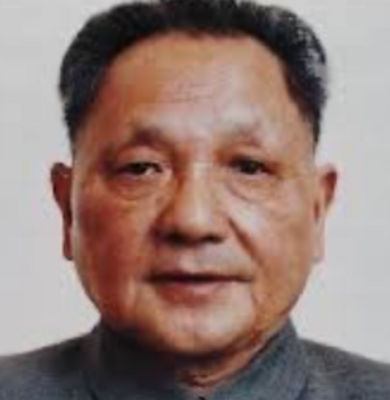Some of his epic grandpa moments:
Deng: My birthday? Is it my birthday tomorrow?
Fallaci: Yes, I read it in your biography.
Deng: Humph! If you say so… I don’t know. I never know when my birthday is, and, even if it is, it’s hardly something to be congratulated about. It means I’m turning sixty-six. And sixty-six means decay.
Fallaci: My father is sixty-six, Mr. Deng, and if I tell my father that this means decay, I think he’ll clock me.
Deng: As well he should! You certainly shouldn’t be saying such things to your father.
Deng: I just told you that the Chinese people would never do to Chairman Mao what Khrushchev did to Stalin!
Fallaci: What if I told you that in the West they call you the Chinese Khrushchev?
Deng: [He laughs.] Listen, they can call me anything they like in the West, but I know Khrushchev well; I dealt with him personally for ten years, and I can assure you that comparing me to Khrushchev is insulting.
Show
The reason some people hesitate to carry out the reform and the open policy and dare not break new ground is, in essence, that they’re afraid it would mean introducing too many elements of capitalism and, indeed, taking the capitalist road. The crux of the matter is whether the road is capitalist or socialist. The chief criterion for making that judgement should be whether it promotes the growth of the productive forces in a socialist society, increases the overall strength of the socialist state and raises living standards. As for building special economic zones, some people disagreed with the idea right from the start, wondering whether it would not mean introducing capitalism... There is no reason to be afraid of them. So long as we keep level-headed, there is no cause for alarm. We have our advantages: we have the large and medium-sized state-owned enterprises and the rural enterprises. More important, political power is in our hands.
...
The proportion of planning to market forces is not the essential difference between socialism and capitalism. A planned economy is not equivalent to socialism, because there is planning under capitalism too; a market economy is not capitalism, because there are markets under socialism too... Are securities and the stock market good or bad? Do they entail any dangers? Are they peculiar to capitalism? Can socialism make use of them? We allow people to reserve their judgement, but we must try these things out. If, after one or two years of experimentation, they prove feasible, we can expand them. Otherwise, we can put a stop to them and be done with it.
Some parts I found particularly enlightening. For me, the question of "is China really socialist?" boils down to political power remaining in the hands of the CPC, which is not afraid to put a stop to practices that no longer "promote[] the growth of the productive forces in a socialist society" and thereby "increase[] the overall strength of the socialist state."
I'd never read in detail on him before, so this was insightful. I feel like I understand better what he was doing and why the approach made sense, with the conditions China was in. Figuring out how to rapidly develop the previously-subjugated productive forces at the scale of China, while dealing with imperialism, attempts at color revolution, etc., was no small thing to work out. It's humbling to think about the degree of collective experimentation, learning, and labor they had to do to get to where they are now.
This reading had a key quote that reminded me how starkly different Deng was compared to the current USA geriatric leadership:
> More young people should be promoted to positions of leadership. The present central leaders are rather advanced in years. Those who are a little over 60 are counted as young. They may be able to work for another 10 years, but 20 years from now they will be in their 80s, like me.
… It is essential for old people like us to stand aside, give newcomers a free hand and watch them mature. Old people should voluntarily offer younger ones their places and give them help from the sidelines, but never stand in their way. >>
i really liked this article. i’m pretty sure i’ve read it before but it was a good reminder.
something’s that stuck out to me was that he understood the material conditions of china really well. he mentioned how he doubts china would have survived june 4th without reform and opening up. he understood that capital wasn’t an inherently evil thing, contrary to moralism, and that it was something to be used to improve the lives of the chinese people.
another thing is it’s interesting to see “left” as what we refer to as ultras and “right” as well capitalist in general. it does make sense to see those things from their perspective having a socialist government though.
good read!
I feel like this text here was a really good read after "Marxism is a Science". Written by a comrade named Roland Boer, he talks about what changes China went through the last 2 decades basically and gives good insights. It's a great analysis imo and together with those excerpts from Deng Xiaoping's speeches I read before, the optimism I felt was refreshing to say the least.
What do you think about it?
Overall, the takeaway for me is dogmatic and ideological purity must be cautioned against just as much as reactionary and capitalist counter revolutionary movements.
Pursuing the implementation of historical materialism and Marxism as a PRACTICE, unique to each material condition and historical moment, at a particular system or place by a particular people available.






